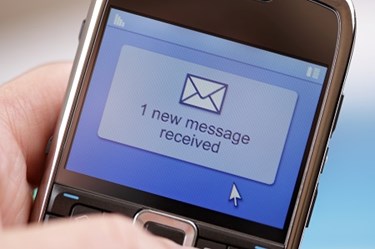What The FCC Exemption On Healthcare Messaging Means

By Christine Kern, contributing writer

Implications of the FCC’s Declaratory Ruling on the Telephone Consumer Protection Act have gone unnoticed, but the implications are important.
While many individuals were celebrating the FCC’s decision to put strong limits on robo-calling and telemarketing efforts, the impact of the July 10th Declaratory Ruling on the Telephone Consumer Protection Act on healthcare has gone somewhat unnoticed.
In the Ruling, the FCC responded to 21 petitions by a number of companies and trade associations which sought relief or clarification regarding the requirements of the Telephone Consumer Protection Act of 1991 (TCPA). The Ruling redefines what equipment falls within the definition of “autodialer,” specifies liability for calls to reassigned telephone numbers, provides consumers with a right to revoke consent by any reasonable means, and establishes new exceptions for financial and healthcare related calls, among other changes.
For the healthcare industry, there are important implications. The ruling granted exceptions for qualifying members to place “non-marketing calls or text messages that would otherwise violate the TCPA, subject to a number of conditions,” writes Ad Law Access.
The ruling allows healthcare providers and their business associates acting within the scope of their role to initiate voice calls or text messages without obtaining prior express content, when the following conditions are met:
- Communication is sent only to the wireless phone number provided by the customer to the healthcare provider.
- Communications state name and contact information of the healthcare provider at the beginning of the call.
- Communications do not include solicitation, telemarketing, or advertising, and do not contain accounting, billing, debt-collection, or other financial content, but contain only healthcare treatment alerts that are HIPAA compliant.
- Communications must be one minute or less for voice calls or 160 characters or less for text messages.
- No more than one communication may be sent per day, with a maximum of three communications per week per healthcare provider.
- Customers must have an “opt-out” option for the communications, such as an interactive voice or key press-activated opt out mechanism.
- Healthcare providers must immediately honor any opt-out requests.
While the ruling seems to make the exceptions fairly straightforward, there is still ambiguity regarding what constitutes a “healthcare” message, as Healthcare Dive notes. Such ambiguity means healthcare providers should exercise caution in their exercise of the exception until more carefully crafted definitions are in place.
The exemption stems from a petition from the American Association of Healthcare Administrative Management (AAHAM), according to the National Law Review. Christine Reilly, co-chair of Manatt, Phelps & Phillips’ TCPA Compliance and Class Action Defense group, explained to Healthcare Dive the exemption is “highly favorable to the industry,” noting this is the second time the FCC has addressed healthcare communications in recent years. In October 2013, the FCC made an exemption for residential calls. This latest exemption for mobile phone calls/texts extends that earlier ruling. “It aims to make sure TCPA does not create liability where HIPAA does not,” Reilly says.
